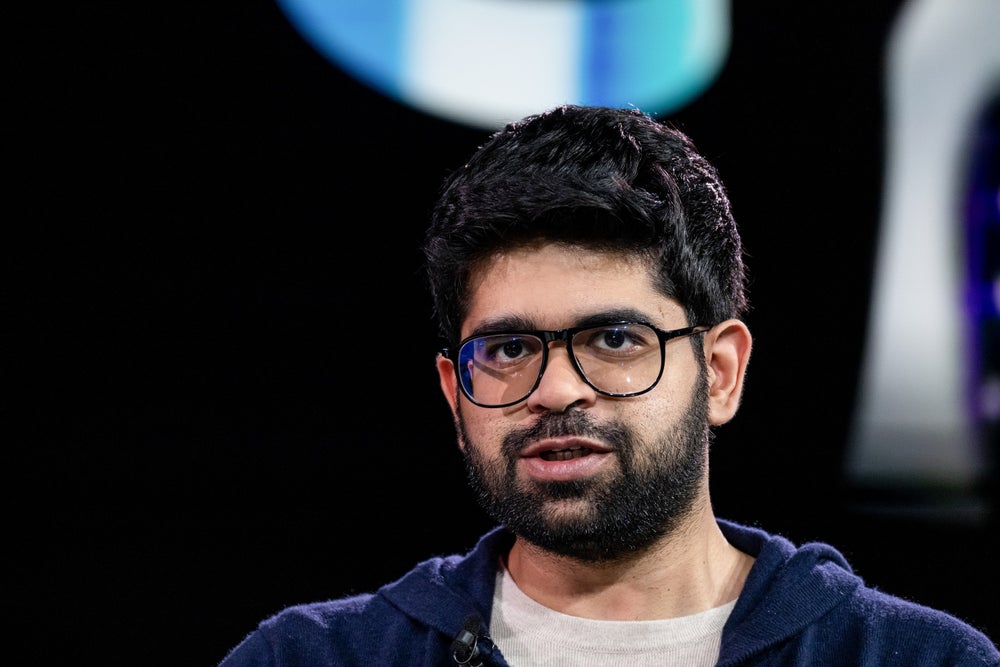Perplexity CEO Says AI Coding Tools Cut Work Time From 'Four Days to Literally One Hour' Perplexity CEO Aravind Srinivas said that the startup's engineers are using AI coding tools.
By Sherin Shibu Edited by Melissa Malamut
Key Takeaways
- Perplexity CEO Aravind Srinivas said the company’s engineers were using AI coding tools to complete tasks more quickly.
- Tasks that would have taken “three, four days” now take “one hour,” Srinivas said.
- Perplexity was reportedly valued at $14 billion in May.
AI search engine startup Perplexity internally mandated the use of AI coding tools — and says that its engineers have been noticeably more productive.
Perplexity CEO Aravind Srinivas told Y Combinator that the startup "made it compulsory" for its engineers to use AI coding tools such as Cursor or GitHub Copilot. These tools can generate blocks of code and debug programs.
Srinivas said that Perplexity engineers have seen measurable outcomes so far: Using the tools cuts down on "experimentation time" for new tasks from "three, four days to literally one hour," he said.
"That level of change is incredible," Srinivas stated. "The speed at which we can fix bugs and ship to production is crazy."
Perplexity's AI search engine reported a 20% month-over-month growth in May with 780 million queries.
 Perplexity CEO Aravind Srinivas. Photographer: David Paul Morris/Bloomberg via Getty Images
Perplexity CEO Aravind Srinivas. Photographer: David Paul Morris/Bloomberg via Getty Images
At Bloomberg's Tech Summit in May, Srinivas predicted that within a year, Perplexity would be handling "a billion queries a week." He pointed out that when the AI search engine first got started in 2022, it processed 3,000 queries a day, advancing to 30 million queries a day by May.
"It's been phenomenal growth," Srinivas stated at the event.
Still, there "are issues," Srinivas said about using AI coding assistants, noting that the tools can introduce new bugs that software engineers aren't familiar with and don't know how to fix.
Last week, Perplexity introduced Comet, an AI-powered web browser that takes on Google Search and Google Chrome. Comet uses Perplexity's AI search engine as its default tool, putting the company's core product front and center for users.
In May, Perplexity was reportedly in late-stage talks for a $500 million funding round that would value the company at $14 billion.
Join top CEOs, founders and operators at the Level Up conference to unlock strategies for scaling your business, boosting revenue and building sustainable success.











